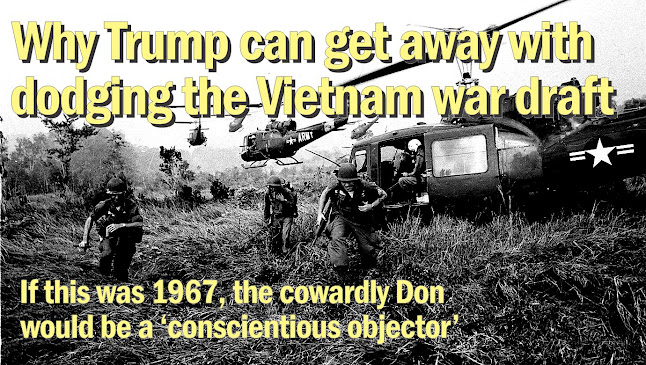But interest remains high on whether that "America First" policy will persist for four more years, or if a fall by Donald Trump might signal an "all-engines full astern" in international legation and a possible u-turn to the "old normal" of global alliances.
However, this is the post-Cold War era where nation's ideologies are no longer black or white. The Republican Party under Trump no longer has for its central organizing principle the containment of Soviet expansionism. It appears by most indications, in fact, that Vladimir Putin--the former head of the KGB--is the US President's unlikeliest bosom friend--something that would be utterly unthinkable during the Reagan years.
What this tells the rest of the world is that the person of the US President is no longer an accurate portrait of the American mindset today. Therefore, nations need to pay attention not just to who America elects as their next president but what philosophy and manner of thinking informed their choice.
In the Cold War era, the conventional wisdom is that the Democratic Party is the party of left-of-center liberals and the GOP is the party of right-of-center conservatives. The liberals believed in proactive government, the power of the State must be used to handicap the economic game ensuring that those who have less in life have more in law. Social security was the key platform of the Democrats, just as a strong leaning towards laissez faire was the Republican dogma.
During the Vietnam war which claimed the lives of more than 58,000 US troops liberal democrats were at the forefront of the antiwar movement. This was happening in the heels of the turbulent protests for civil rights that began in the early 60s and still smoldering in many parts of America. World boxing champion Muhammad Ali, the period icon of black conscientious objection, refused to fight in Vietnam because he believed the Vietcong did nothing to hurt the black man. So the Vietnam war became the symbol of the moral depravity of American geopolitics. It was seen as a white man's war that used the black man as cannon fodder. Those who acquiesced to serve in it were baby killers and those who opposed it conscientious objectors. If you supported the war back then, you supported white supremacy and black subjugation.
Ironically if Donald Trump were to go back to the 1960s and announce that he is defying the draft, he would be celebrated as a hero. Instead today he is dogged by the narrative that he used educational deferments and faked a physical disability to avoid fighting the war in Vietnam. His most vocal critics are liberal Democrats who opposed the war in Vietnam and support an all-volunteer US soldiery.
The point, say the Democrats, is that he faked his reason for dodging military duty. But wasn't it the central argument of the antiwar movement that America had no moral reason whatsoever to wage that war at all?
The reason behind the strong bipartisan support for the US military today among the American public is because it is an all-volunteer force. The subtext is that the average American would not want to fight in any war, if given a choice. Therefore, they go all out in support of the few good men and women who do. A program to coerce young men and women to pick up a rifle against their will and to report to the frontlines would fail today just as "bigly" as it did in 1967. Donald Trump knows that this is the unspoken sentiment of the average American.
I think Donald Trump has got the American pulse right on this one. By extolling the practical value of avoiding military service, he is channeling the quintessential American sentiment--an oxymoronic concept that I call "spectator gladiator syndrome".
To understand it, just imagine what Americans love to do: watch ballgames--especially the NBA where 90% of players are African-American. A ballgame, defined, is an event where 10,000 out-of-shape fans watch ten supremely conditioned athletes wage war, sharing their victory with all the spectators whose only contribution to the effort was to cheer.
To such a people, sitting in the stands is no more demeaning than avoiding a war forty years ago. They will celebrate a man who demonstrated that you can do the ignoble and not have to apologize. Most of all, they will support a draft-dodging president who stands for the right to refuse to fight and possibly die, if there can only be organized a bunch of derring-dos willing to bite the bullet for minimum pay. They would rather do more pleasurable things than kill. Make love, not war. You'll be surprised how many anti-Trump Democrats and Never-Trumper Republicans belong to that demographic.
NOTE FROM JOEL: Hi, folks! Recently, I started a YouTube channel which is called "Parables and Reason" It is kind of similar to this blog content-wise. You can check out my channel by clicking the link below:
Joel R. Dizon - PARABLES AND REASON




No comments:
Post a Comment